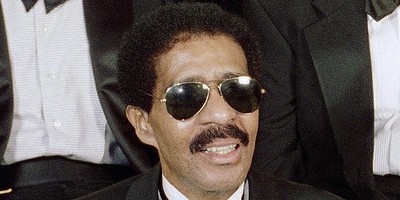The real news behind South America's latest border fracas is Colombia's looming victory in its own narcotics-powered civil war.
This is a victory Colombia's chief international antagonist, Venezuelan caudillo Hugo Chavez, fears -- for several calculating reasons.
Let's start with Colombia's slow and grueling democratic accomplishment. On Feb. 5, hundreds of thousands of Colombian citizens marched in the capital, Bogota, in a mass protest against crime and terrorism. Their anger had an explicit political target: the Revolutionary Armed Forces of Colombia, better known by its Spanish acronym, FARC.
The jam-packed demonstrations impressed reporters and correspondents who have followed Colombia's brutal two decades of "The New Violence." The protests provided in-your-face media evidence that security in Bogota had indeed improved dramatically and that public confidence in local and national institutions had revived.
Seven years ago, Colombia was being kidnapped, murdered and blown to shreds. In the dark year 2001, rebels kidnapped over 2,500 people. Rebel groups of the left (FARC) and right (AUC, United Self-Defense Forces of Colombia) fought one another and the government. Six thousand people died in the crossfire. The Colombian Army remained, for the most part, on the strategic defensive.
The grim years of murder stripped FARC of its vestigial Marxist political veneer, revealing it as a drug army attempting to hijack a nation. Colombians turned against FARC. In 2002, Colombia began hammering out an incremental victory over FARC and other narco-gangsters. (Critics of democratic Iraq, take note.)
Recommended
By 2005, the Colombian military's counterinsurgency operations and the government's tough reform programs had clearly squeezed FARC into a few hard jungle corners. FARC, however, maintained bases in Ecuador (definite evidence) and --Colombia alleged -- inside Venezuelan territory.
This week, Colombia launched a strike against a FARC base in Ecuador. Tired of terrorism, Colombia is not going to let FARC thugs hide in Ecuadorian or Venezuelan jungles. Moreover, the Colombian government now says FARC intended to attack Colombia with "dirty" (radioactive) bombs in a desperate blitz to cow the populace. Colombian president Alvaro Uribe said, "We cannot allow terrorists who seek refuge in other countries to spill the blood of our countrymen."
Ecuador and its ally, Venezuela, responded by threatening Colombia with war.
Colombia argues that support for FARC by Ecuador and Venezuela means a state of quasi-war already exists.
FARC definitely established a political relationship with Chavez-led Venezuela. Chavez advocates "socialism" (socialist dictatorship), and FARC had Marxist roots. Last year, the connections became overt when Chavez asked Colombia to agree to let FARC use Venezuela as a "sanctuary zone."
Despite their blatant thuggery, both Chavez and FARC still have "progressive" apologists in Europe and among American leftists. Chavez claims Fidel Castro's "anti-Yankee" legacy, which polishes his "progressive" appeal. Add this to the flammable mix: Ecuador's president is a personal ally of Chavez and something of a protege.
The conventional wisdom says Chavez is bluffing. The Peru-Ecuador Border War of 1995, however, demonstrates that border skirmishing in South America can quickly escalate. Still, South American border wars stir nationalist passions -- in the 1995 conflict, Peru's authoritarian president, Alberto Fujimori, saw his popularity skyrocket.
Chavez faces domestic troubles. He has brutalized his domestic opponents. He has squandered Venezuela's oil windfall -- on populist political schemes and Russian weapons. He suffered a stinging setback in late 2007 in a referendum that would have essentially made him president for life. Oil production is declining. His political supporters have enriched themselves, sparking resentment among poor Venezuelans who once overwhelmingly backed Chavez.
Thus a little border scrap with Colombia could boost Chavez' sagging domestic fortunes. Colombia and Venezuela have had several border demarcation disputes.
Chavez himself introduces other curious elements that could lead to a larger war. Chavez styles himself as South America's new liberator, a new Simon Bolivar. Chavez's "Chavismo" (echoing Fidel Castro's "Fidelismo") combines machismo, socialism, caudilloism, populism, anti-Americanism and the flamboyant dream of a new "Bolivarian state" in South America. Of course, this delusional super-state -- cobbled from Venezuela, Colombia, Ecuador, parts of Peru, Bolivia and Guyana, and possibly the Dutch West Indies -- needs a "great leader": Hugo Chavez.
Colombia, however, demonstrates that political thugs and terrorists can be beaten. It provides a democratic model that challenges Chavismo.
Colombia is solidifying its difficult victory. Chavez knows if Colombia succeeds it would empower his own democratic opposition. And the border fracas maybe his last chance to forge his grandiose "Bolivarian state."

























Join the conversation as a VIP Member